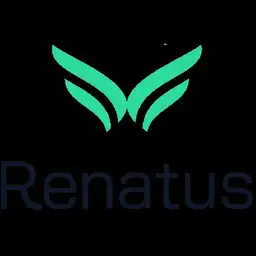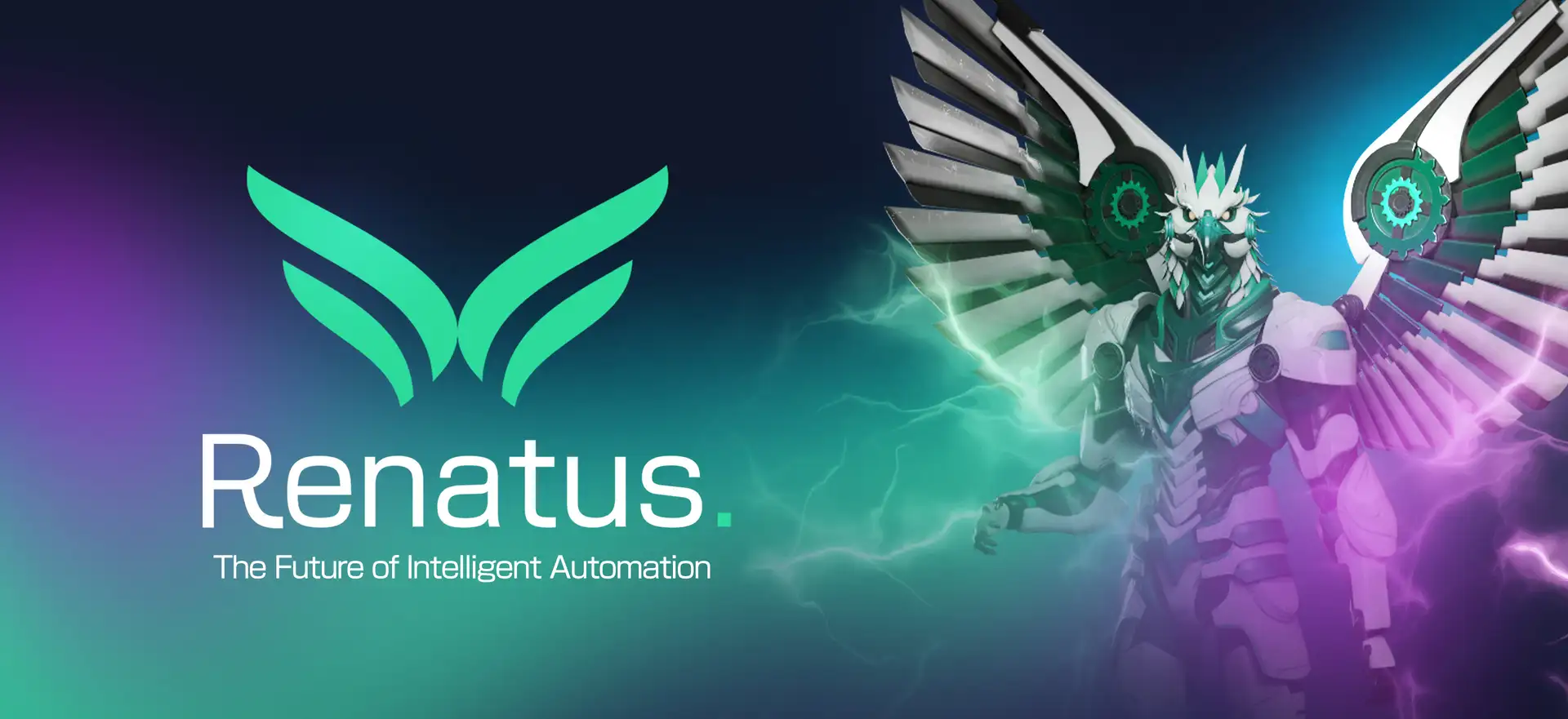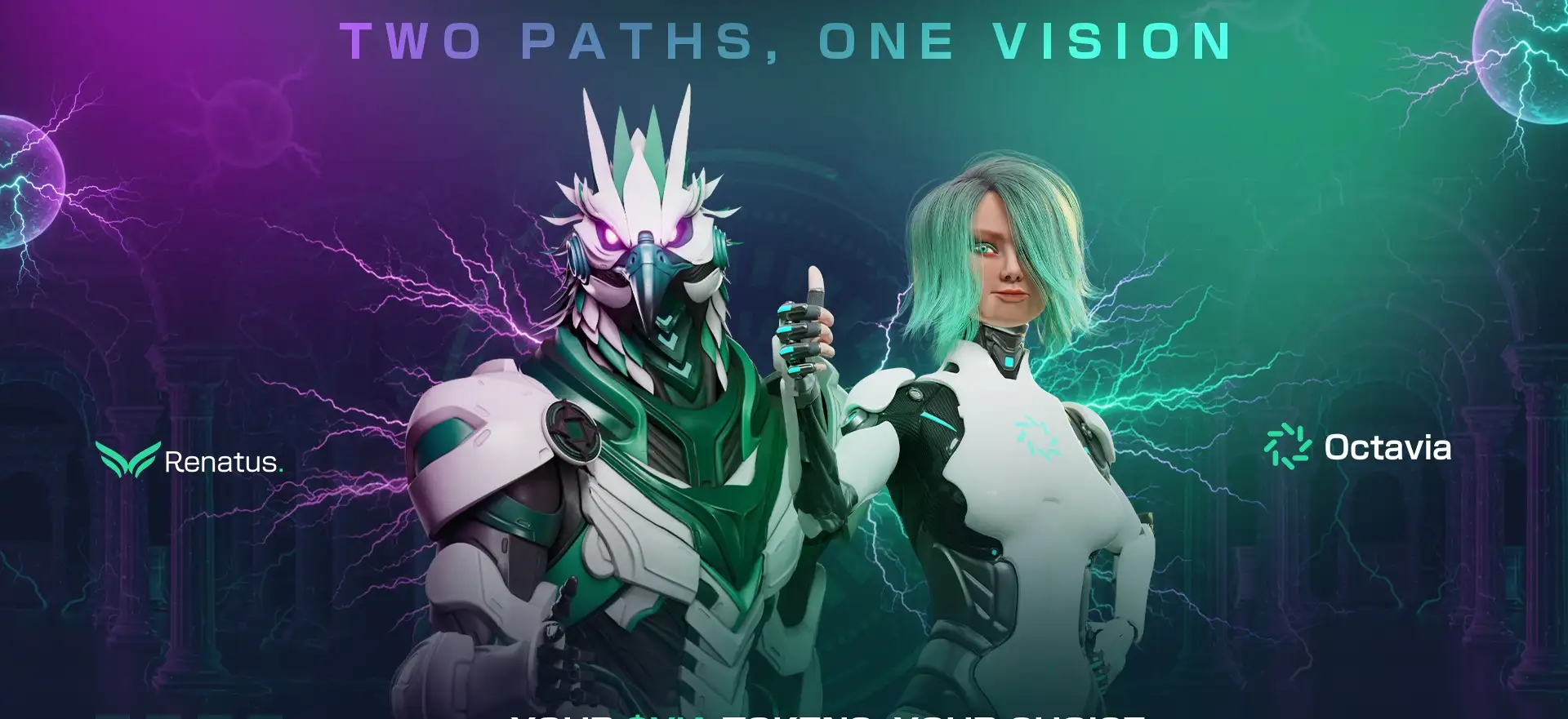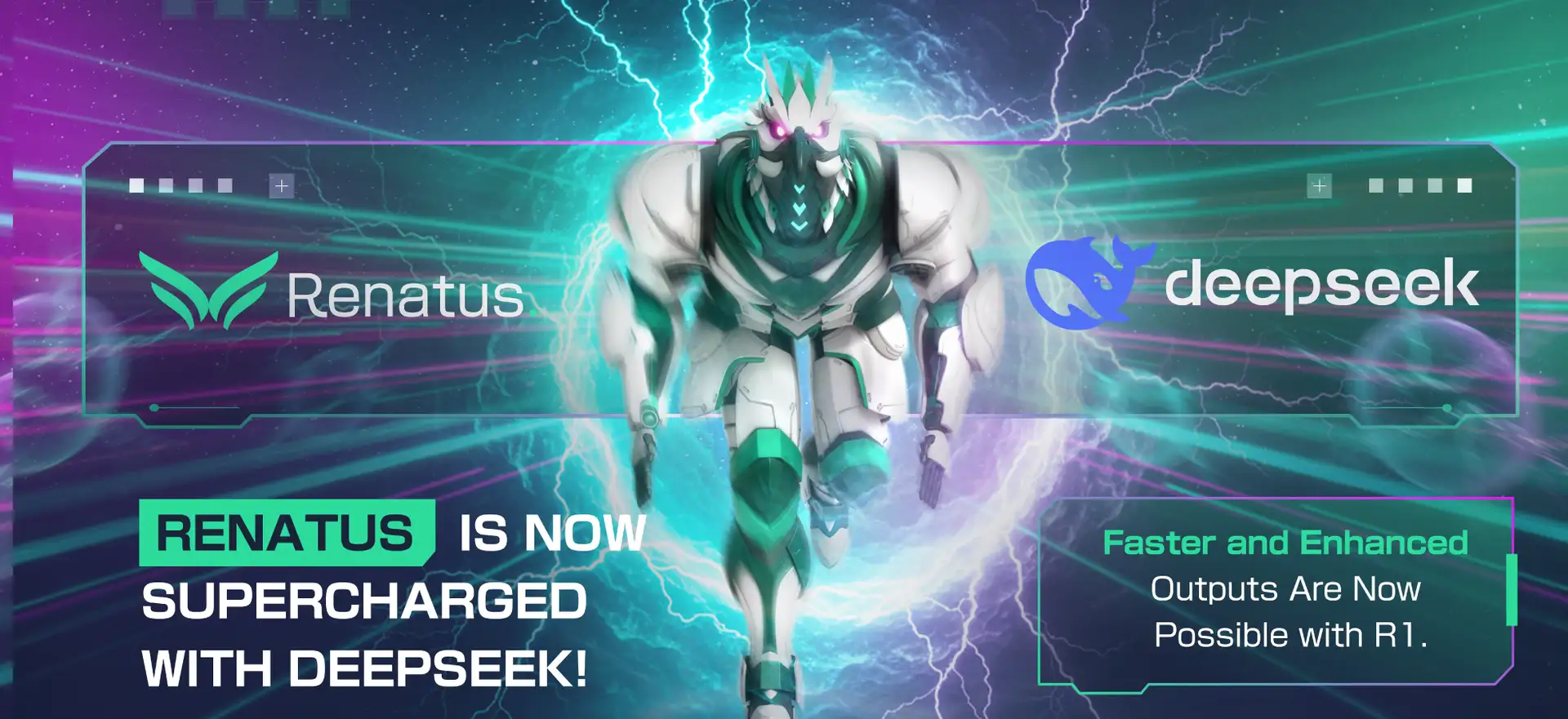About Renatus AI
Renatus AI is an innovative AI Agent Platform designed to make tokenized AI Agents accessible, customizable, and utility-driven. Launching in Q1 2025, Renatus AI aims to be the leading hub where users can build, share, and interact with top-tier AI solutions tailored for efficiency.
Inspired by the legacy of Rome, Renatus AI unites intelligent AI agents to collaborate and rebuild what humanity couldn't, creating a foundation stronger than ever. The platform features a dynamic AI agent marketplace, allowing users to engage with specialized AI-driven solutions, fostering a community of automation, intelligence, and productivity.
Renatus AI envisions a future where AI agents seamlessly handle tasks, processes, and workflows, empowering users to delegate complex operations effortlessly. As a central hub for intelligent automation, Renatus AI allows AI-driven agents to work, learn, and evolve, optimizing user efficiency.
The name Renatus, meaning "born again" in Latin, signifies a rebirth of AI-driven productivity. This concept represents a revolution in AI technology, where self-learning agents continuously evolve, offering users highly efficient, intelligent solutions. The platform is built by a team of industry experts, supported by top advisors, strategic partners, and core developers, ensuring its long-term growth.
By creating an ecosystem of AI collaboration, Renatus AI enables agents to work together, revolutionizing digital labor, automation, and problem-solving. This platform aims to redefine AI utility, offering a new foundation for intelligent systems to thrive.
Renatus AI has outlined an ambitious development roadmap to establish itself as the leading platform for AI-powered automation:
- Q1 2025: Official launch of Renatus AI, introducing a central hub for AI-driven automation.
- January 14, 2025: Testnet Beta launch, enabling users to explore the platform’s AI agents and refine functionalities before the official release.
- Post-Launch: Continuous expansion of the AI agent marketplace, integrating new AI solutions, community-driven improvements, and advanced agent functionalities.
As part of its launch strategy, Renatus AI is rolling out a Testnet Beta on January 14, 2025. This program allows users to interact with AI agents, explore automation capabilities, and provide feedback to improve the platform. Testnet participants will have early access to exclusive AI tools, with opportunities to shape the platform's future. Feedback collected during this phase will drive optimization, security enhancements, and AI improvements, ensuring a seamless experience upon official release.
Renatus AI Suggestions by Real Users
Renatus AI FAQ
Renatus AI creates a dynamic ecosystem where AI agents can interact, learn, and execute tasks together. Unlike isolated AI models, these tokenized AI agents communicate in real time, optimizing workflows through cross-agent intelligence. By integrating specialized AI agents for different tasks, Renatus AI fosters a cooperative system where multiple AIs work in tandem to solve complex problems efficiently.
Unlike conventional AI models, which operate as centralized services, Renatus AI offers tokenized AI agents that are customizable, interoperable, and secure. These agents are linked to on-chain identity, ensuring verifiability and preventing unauthorized modifications. Through its marketplace, users can deploy, trade, and enhance AI agents, unlocking new use cases beyond traditional AI limitations. Explore more at Renatus AI.
The Renatus AI Marketplace implements a rigorous vetting and rating system where AI agents are evaluated based on performance, transparency, and security. Users can review detailed logs, test agent capabilities, and rely on community feedback before adoption. Additionally, smart contract verification ensures that AI agents behave as expected, preventing malicious modifications or unreliable outputs.
Yes! Renatus AI provides a powerful AI customization framework that allows users to build, train, and deploy AI agents tailored to their needs. Users can adjust parameters, set execution conditions, and even integrate multiple AI models into one adaptive AI agent. This enables businesses and individuals to create unique, task-specific AI agents that evolve with changing requirements.
You Might Also Like












